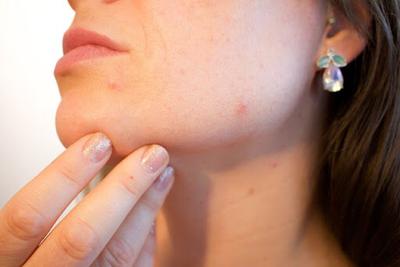
It can be very annoying when you cure your acne yet continue to get breakouts despite your treatment. Acne has a variety of root reasons, and therefore, treating it will look different for each individual. Luckily, there are a few self-care practises that you may perform at home that will assist in the management of your acne while you are undergoing treatment.
Dermatologists who have completed additional training beyond that required for board certification propose the following acne treatment tips.
Always Make Sure Your Skin Is Clean
Wash your face with a mild cleanser up to twice a day and after you've been sweating. Choose a cleanser that isn't too harsh and isn't too abrasive. Because cleaning with hand towels, sponges, and other implements can irritate your skin, you should massage it with your fingers instead.
Select The Appropriate Skin Care Products
Make sure to choose skin care products that aren't harsh on your skin and that don't include any alcohol. Avoid using any products, such as astringents, toners, and exfoliants, that have the potential to irritate your skin. These products may cause your skin to become dry and may even make acne worse. Use the right acne treatment products for your skin.
Use Shampoo Regularly
Breakouts on your forehead may be caused by the oil that is produced by your hair. You should shampoo your hair more frequently than you already do if you already have oily hair, and you should keep your hair out of the face.
Continue With Your Treatment As Planned
Experimenting with new remedies too frequently might aggravate existing acne and trigger new outbreaks on the skin. Allow your treatment some time to take effect. Before you start to notice a difference, it could take anything from a few weeks to a few months.
Do Not Touch It In Any Way
Acne might get more severe if you touch your face frequently during the day. It may be tempting to pick, pop, or crush acne lesions, but doing so can make it take longer for the acne to go away and will raise your risk of scarring and dark patches, a condition known as post-inflammatory hyperpigmentation.
Avoid Getting Sun And Heat Exposure
Tanning not only causes harm to your skin but also makes acne worse and increases your risk of developing skin cancer. Certain acne drugs have the additional side effect of making the user's skin more sensitive to the sun's and tanning bed's potentially damaging ultraviolet rays.
When you are outside, make sure to protect your skin by staying out of the sun, trying to seek shade, wearing sun-protective garments, and using a broad-spectrum, water-resistant sunblock with an SPF of at least 30 to any area of your skin that is not covered by clothing. This will help prevent premature ageing and skin cancer. Search for a sunblock that states either "won't clog pores" or "non-comedogenic" on the label. Choose articles of clothing that have a label that specifies the UV protection factor (also known as UPF) for increased efficacy in sun protection.




(0) comments
We welcome your comments
Log In
Post a comment as Guest
Keep it Clean. Please avoid obscene, vulgar, lewd, racist or sexually-oriented language.
PLEASE TURN OFF YOUR CAPS LOCK.
Don't Threaten. Threats of harming another person will not be tolerated.
Be Truthful. Don't knowingly lie about anyone or anything.
Be Nice. No racism, sexism or any sort of -ism that is degrading to another person.
Be Proactive. Use the 'Report' link on each comment to let us know of abusive posts.
Share with Us. We'd love to hear eyewitness accounts, the history behind an article.